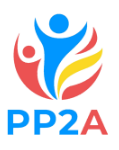Insufficient understanding of parental caregiving for special needs children: Institutions' role in service delivery Based in Depok
Keywords:
Children with special needs, Community Service , Disability, Institutions' role in serviceAbstract
Exclusion and marginalisation are common for special needs children. Children with special needs are routinely discriminated against. Access to education is difficult for them. Some traditional schools won't accept them. These schools need qualified teachers to help pupils with special needs. Special needs children may need to attend schools far from home. Partners for Community Service and Real Work Lectures is a disability care company and educational institution. Special needs children have several problems with diet, health, education, parental awareness, and abilities. A distinct problem is the need to understand the unique needs of parenting better. To address this issue, educational or school services must be tailored to the needs of children who require unique learning system accommodations, supportive resources, and teachers' crucial role in motivating and guiding them. This study examines special needs children and the academic service models used to help them learn and be creative. This study examines institutions' role in caring for Depok's special needs children. Special-needs youngsters need institutions for support. This study examines how institutions improve special education services in Depok. Interviews and document analysis were used to study many special needs institutions. The research shows that institutions are essential for special needs children. This function includes providing special education facilities, training teachers, psychosocial support, and advocating for special needs children.

 Universitas Muhammadiyah Jakarta, Indonesia
Universitas Muhammadiyah Jakarta, Indonesia


















